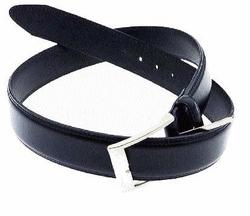Merylyn Campbell-Flinch, Contributor

This is the first instalment in a series on corporal punishment.
As a parenting educator, I was pleased when I heard Minister of Education Andrew Holness speak of the need to utilise alternative methods, other than corporal punishment as 'rods of correction'.
Interestingly, the news reporter, in relaying the information, cited the proverbial: don't spare the rod and spoil the child - a loose use of Prov 13:24 which states, "He who spares the rod hates his son, but he who loves him is careful to discipline him (NIV)." Solomon, in Chapter 23:13-14 further states: "Do not withhold discipline from a child; if you punish him with the rod, he will not die. Punish him with the rod and save his soul from death (NIV)."
William and Martha Sears, in The Discipline Book, agreed with Holness by positing that the rod should be seen as any method or instrument that is used by an adult to reinforce acceptable behaviour. They further pointed out that a shepherd does not use the rod to whip the sheep; instead, he uses it to gently guide the sheep and to take it out of undesirable places. With this knowledge in mind, one can then understand what the psalmist David meant when he said to God, his heavenly parent, "Thy rod and Thy staff, they comfort me! (Psalm 23:4)"
Appropriate behaviour
One of the ways parents are expected to socialise their children is to teach them how to behave appropriately. The focus, however, is on teaching children how to behave because they know that is the right thing to do and not because they are fearful of what their parents will do or how they will react. Reactions that make the children focus, not on doing the right, but on not getting caught! Adults should, therefore, be proactive in teaching acceptable behaviour.
The proactive approach requires that the child is taught the kinds of behaviours that are considered socially acceptable.
Therefore, the child who refuses to take what does not belong to him/her is said to be a disciplined child. However, if the child does the opposite, the person in authority reacts by applying an acceptable method of punishment. One of the problems is that many children are punished for unacceptable behaviours without being taught how to behave.
Generally, children love to please. I remember an elderly person sharing her experience of how she was beaten by her mother for being 'obedient'. One day, she was on her way to the shop when an adult she knew gave her a note to give to another adult. She went the distance to deliver the note. That adult gave her another note to give to another person. Eventually, she found out that the note read: "Send the fool a little further." It was April 1! She was taught to be obedient and respectful to adults, yes, all adults!
Teach first
The reaction of the person in authority should be based on the extent to which the child had been taught. It means then that teaching - disciplining, providing clear instructions - comes before punishment!
The Bible is filled with examples of discipline before punishment. Psalm 1 teaches how one should behave in godly fashion: "Blessed is the man who walks not in the counsel of the ungodly nor stands in the way of sinners ... (vs 1, emphasis supplied). It then cites what will happen to those who do not: " ... but the way of the ungodly shall perish (vs 6)." A similar approach is seen in Deuteronomy 28.
The reasons parents and teachers use corporal punishment in attempting to correct inappropriate behaviour include their reaction to personal stressors, poor control of the immediate situations, lack of preparation for the task at hand, embarrassment because of those who witness the behaviour, and because they did not learn proper alternatives. Consequently, they resort to corporal punishment as their only method of trying to eliminate the inappropriate behaviour.
Merylyn Campbell-Flinch has a Bachelor of Arts degree in theology and a Master of Arts degree in educational and developmental psychology. She is an assistant professor at Northern Caribbean University. Email feedback to columns@gleanerjm.com and merylyn.flinch@ncu.edu.jm.
Do not withhold discipline from a child ... Solomon 23:13

